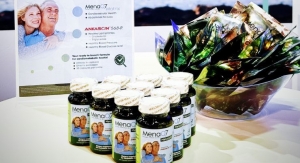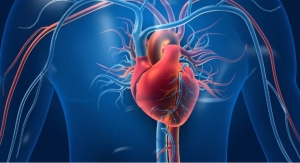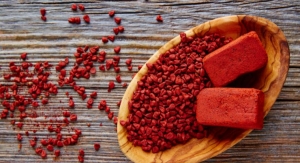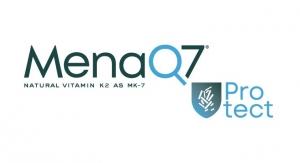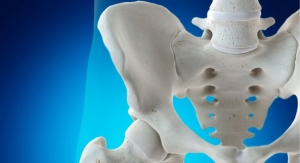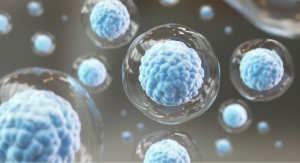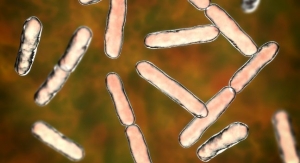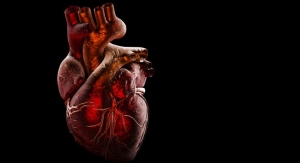07.07.20
A clinical trial called “Effect of Menaquinone-7 (vitamin K2) on the vascular elasticity in healthy subjects: results from a one year study,” which was recently published in the journal Vascular Diseases and Therapeutics provided further evidence that vitamin K intake may reduce cardiovascular risk by decreasing arterial stiffening within one year.
The authors of this study wrote that two previous trials studying vitamin K supplementation for its effect on arterial stiffening found that vitamin K’s benefits only became significant compared to placebo after three years. The current trial, however, evaluated a pre-selected group of vitamin K-deficient men and women to determine if vitamin k supplementation would have an effect within one year.
The study, conducted by researchers at VitaK selected 243 men and women between the ages of 40 and 70 who were characterized by circulating dp-ucMGP concentrations above the median of the general population for the placebo-controlled trial.
Matrix Gla-Protein (MGP) is involved in the prevention of arterial calcification. During vitamin K deficiency, MGP is produced in its inactive form, dp-ucMGP, and higher-than-average concentrations of dp-ucMGP are believed to signify vitamin K deficiency.
For one year, the treatment group received 180 µg/day of a branded Vitamin K2 as MK-7 by NattoPharma, or a placebo for one year. Arterial stiffness was assessed using the carotid femoral pulse-wave velocity (cfPWV) and other vascular characteristics, which were measured by echotracking the common carotid artery.
In the total study group, MK-7 supplementation induced a significant decrease of both dp-ucMGP and cfPWV compared to placebo.
“Despite the relatively small improvement of vitamin K status, a significant benefit of MK-7 was observed in the primary endpoint cfPWV: whereas in the placebo group cfPWV increased in an age-dependent way, no increase was observed in the MK-7 treated group,” the authors concluded. “This result is consistent with outcomes in two previous 3-year studies among postmenopausal women but to our knowledge this is the first time that a vascular effect was observed within one year of treatment. Remarkably, also the previously reported vitamin K-induced weight loss was only seen in women, the fact that in the previous paper the weight loss was mainly due to the loss of visceral and abdominal fat suggests an additional benefit of high vitamin K intake.”
Hogne Vik, NattoPharma’s Chief Medical Officer, reflected on the results of this study.
“This study continues to build the rock-solid argument that MenaQ7 Vitamin K2 – not K1 or other unstudied vitamin K2 ingredietns – delivers important cardiovascular support,” Vik said. “In this study, the participants taking MenaQ7 maintained arterial flexibility and the stiffness did not increase, whereas placebo group became stiffer and less flexible.”
“These results mirror what we have seen in epidemiological studies, where populations who consume a lot of dietary vitamin K2 have healthier hearts and more flexible arteries, as well as our groundbreaking three-year study in healthy postmenopausal women,” Vik continued. “Vitmain K2 is indeed a vital cardiovascular support nutrient, and MenaQ7 is the only K2 as MK-7 clinically proven to do so.”
The authors of this study wrote that two previous trials studying vitamin K supplementation for its effect on arterial stiffening found that vitamin K’s benefits only became significant compared to placebo after three years. The current trial, however, evaluated a pre-selected group of vitamin K-deficient men and women to determine if vitamin k supplementation would have an effect within one year.
The study, conducted by researchers at VitaK selected 243 men and women between the ages of 40 and 70 who were characterized by circulating dp-ucMGP concentrations above the median of the general population for the placebo-controlled trial.
Matrix Gla-Protein (MGP) is involved in the prevention of arterial calcification. During vitamin K deficiency, MGP is produced in its inactive form, dp-ucMGP, and higher-than-average concentrations of dp-ucMGP are believed to signify vitamin K deficiency.
For one year, the treatment group received 180 µg/day of a branded Vitamin K2 as MK-7 by NattoPharma, or a placebo for one year. Arterial stiffness was assessed using the carotid femoral pulse-wave velocity (cfPWV) and other vascular characteristics, which were measured by echotracking the common carotid artery.
In the total study group, MK-7 supplementation induced a significant decrease of both dp-ucMGP and cfPWV compared to placebo.
“Despite the relatively small improvement of vitamin K status, a significant benefit of MK-7 was observed in the primary endpoint cfPWV: whereas in the placebo group cfPWV increased in an age-dependent way, no increase was observed in the MK-7 treated group,” the authors concluded. “This result is consistent with outcomes in two previous 3-year studies among postmenopausal women but to our knowledge this is the first time that a vascular effect was observed within one year of treatment. Remarkably, also the previously reported vitamin K-induced weight loss was only seen in women, the fact that in the previous paper the weight loss was mainly due to the loss of visceral and abdominal fat suggests an additional benefit of high vitamin K intake.”
Hogne Vik, NattoPharma’s Chief Medical Officer, reflected on the results of this study.
“This study continues to build the rock-solid argument that MenaQ7 Vitamin K2 – not K1 or other unstudied vitamin K2 ingredietns – delivers important cardiovascular support,” Vik said. “In this study, the participants taking MenaQ7 maintained arterial flexibility and the stiffness did not increase, whereas placebo group became stiffer and less flexible.”
“These results mirror what we have seen in epidemiological studies, where populations who consume a lot of dietary vitamin K2 have healthier hearts and more flexible arteries, as well as our groundbreaking three-year study in healthy postmenopausal women,” Vik continued. “Vitmain K2 is indeed a vital cardiovascular support nutrient, and MenaQ7 is the only K2 as MK-7 clinically proven to do so.”



